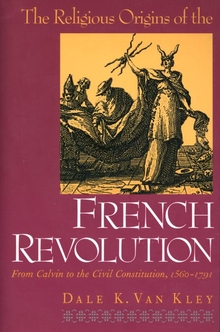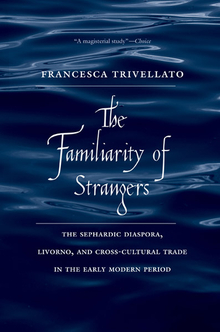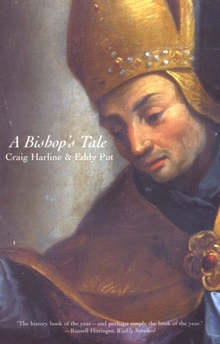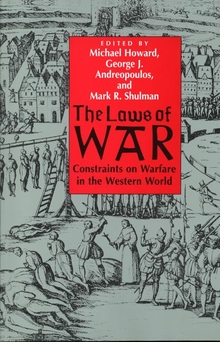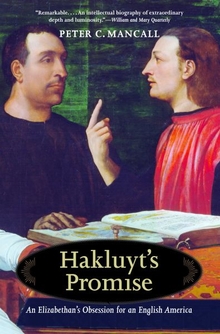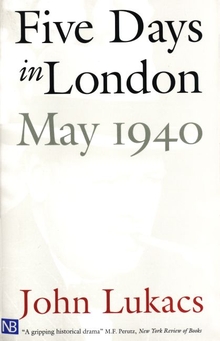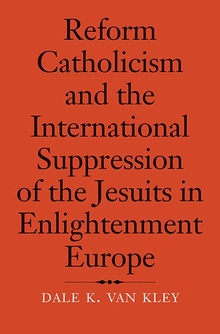The Religious Origins of the French Revolution
WARNING
You are viewing an older version of the Yalebooks website. Please visit out new website with more updated information and a better user experience: https://www.yalebooks.com
From Calvin to the Civil Constitution, 1560-1791
Dale K. Van Kley
Van Kley draws on a wealth of primary sources to show that French royal absolutism was first a product and then a casualty of religious conflict. On the one hand, the religious civil wars of the sixteenth century between the Calvinist and Catholic internationals gave rise to Bourbon divine-right absolutism in the seventeenth century. On the other hand, Jansenist-related religious conflicts in the eighteenth century helped to "desacralize" the monarchy and along with it the French Catholic clergy, which was closely identified with Bourbon absolutism. The religious conflicts of the eighteenth century also made a more direct contribution to the revolution, for they left a legacy of protopolitical and ideological parties (such as the Patriot party, a successor to the Jansenist party), whose rhetoric affected the content of revolutionary as well as counterrevolutionary political culture. Even in its dechristianizing phase, says Van Kley, revolutionary political culture was considerably more indebted to varieties of French Catholicism than it realized.
"A magisterial interpretation of the religious and political history of the Ancient Regime. Thoughtful, carefully researched, mature, and convincing, it will be a standard work in the field."—Orest Ranum
"A fascinating and very important book that will do much to change the way historians think about eighteenth-century France and the origins of the French Revolution."—David Bell
"In this important book, Van Kley explores with great erudition the secret pathway from Jansenism to the French Revolution."—François Furet, Centre de Recherches Politiques
"For Francophiles and history buffs, I recommend Dale K. Van Kley's The Religious Origins of the French Revolution."—America
"This is a major book. . . . It will. . . compel any future historian seeking to produce a new synthesis on the coming of the revolution to integrate into his views the tale of how the interplay of Jansenism, ultramontanism, various parlements, and the crown became a major factor in convincing many Frenchmen that absolute monarchy was an improper, even a despotic, form of government."—David Hudson, History
"In a richly documented, well organized, and clearly written study, Van Kley contends that royal absolutism in France was first a product and then a casualty of religious conflict. The argument is not that only religion counted, but that in diverse and often subtle ways religious divisions and discourse permeated and shaped political developments so profoundly that French political history in this period cannot be rightly understood without taking the religious dimension into account. . . . Offering a convincing interpretation of the religious and political history of the Old Regime, this erudite and urbane book promises to change the way we think about the origins of the revolution."—Richard A. Lebrun, Canadian Journal of History
"This is an original, solid scholarly performance on an important subject. . . . A valuable book for college and university libraries."—Choice
"A massive work of learning on every aspect of Jansenist thought and political activity over the seventeenth and eighteenth centuries, broadening out to follow up the ramifications in borrowings by anticlerical writers and to assess the damage to monarchical authority caused by the anti-Jansenist polemics of the ecclesiastical hierarchy. . . . It will take time for the diverse insights of this volume to be assimilated into the established view of the eighteenth century, but the broad, innovative theme is entirely convincing."—J. McManners, Journal of Ecclesiastical History
"Van Kley's book provides us with a solid understanding and insight into the political world that swept away royal absolutism in France in the 1790s, a revolution which had roots deeply embedded in the religious struggles of the sixteenth century wars of religion."—Yuri Ivonin, Sixteenth Century Journal
"Van Kley's book is at once a comprehensive overview of the major religious controversies of Old Regime France, and an interpretation of those events that builds on the theses of the author's earlier studies."—David Longfellow, Journal of Church and State
"This book presents an extremely erudite account of the complex religious situation in France between the Wars of Religion and the Revolution. The insight it gives into the intricacies of the religio-political relationship during these years is fascinating. . . . A work of meticulous scholarship, extensive footnotes, and an imaginative attempt to extend the Pre-revolution by two centuries."—Kirsty Carpenter, Huguenot Society Proceedings
"Well written with a lively pace, the book combines careful interpretations of particular texts with a broad synthetic vision. . . . A clear, consistently-argued demonstration of the importance of religion in the formation of the French political culture of the late eighteenth century."—David Keck, Journal of the American Academy of Religion
"Scholars and students alike will profit enormously from [Van Kley's new book's] erudition and insight."—Michael Wolfe, American Historical Review
"An impressive book on three counts: it presents a new and persuasive thesis; it is thoroughly researched; it is written with clarity and elegance. Based on a large sample of seventeenth-and eighteenth-century French pamphlets, periodicals, treatises, and works of the philosophers as well as police reports, trial records, memoirs, and observations of contemporaries, Van Kley's opus blends intellectual, cultural and political history with unusual success."—Robert Forster, Religious Studies Review
"The author draws on a vast amount of scholarship to reconstruct the complex ideological and political evolution of Jansenism that instigated the Revolutionary process. The demonstration is impressive and often convincing. . . . This brilliant essay is above all a testimony to recent scholarship in the field of eighteenth-century France, especially at the level of intellectual and political analysis. . . . This is an important book, therefore, that deserves, indeed, to become 'a standard work in the field'."—Jacques M. Gres-Gayer, Catholic Historical Review
"A provocative and powerfully argued synthesis, he brings together many of his previously elaborated ideas and expands them to include the entire period from the Reformation through the French Revolution. . . . Without a doubt his book will become basic reading for anyone interested in the intellectual and religious history of eighteenth-century France."—Timothy Tackett, Journal of Modern History
"His argument is solid, illustrated by studies of a great number of individual bishops and clergy, their views and sympathies; individuals and groups are admirably described as they veer toward independence from the King and the Gallican Church."—Oscar A. Haac, French Review
"This is an important book that, with all its complexities, is an essential and convincing attempt to add a major strand to the debate on the origins of the French Revolution. Scholars will want to explore its insights for many years."—Peter Campbell, English Historical Review
Publication Date: November 10, 1999

